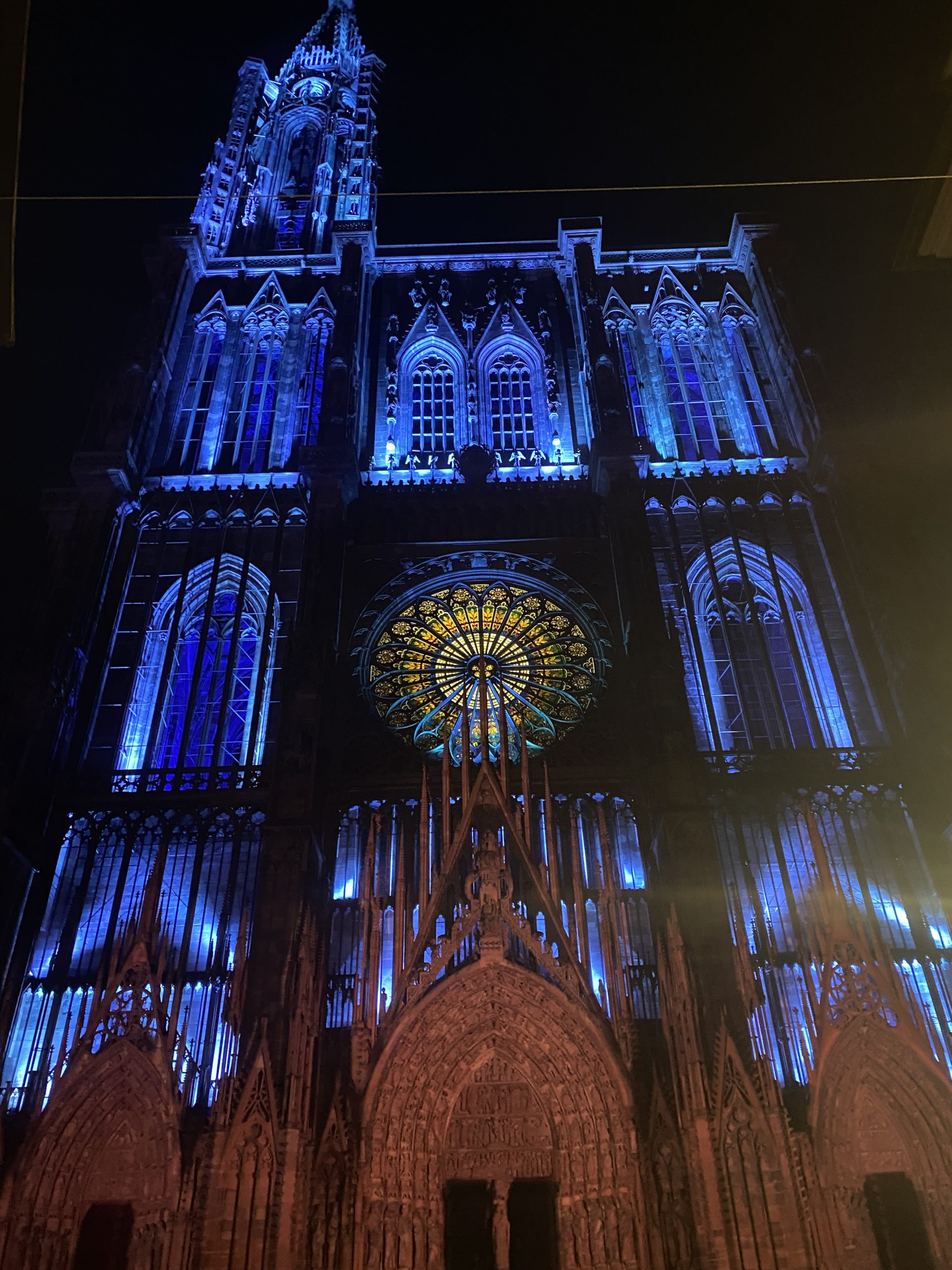Written by Caleb Ridings
Bonjour ! Je m’appelle Caleb et dans ce post, je vais partager mes réflexions sur mon été à Strasbourg, où j’ai travaillé pour l’ECLJ. Hello! My name is Caleb. I’m a rising 2L with a passion for language and the law. This blog post will share reflections on my time working in Strasbourg for the European Centre for Law and Justice (ECLJ) this Summer.
The above introduction, although at first glance redundant, is a luminous illustration of the kind of work I performed this Summer for the ECLJ. Although not necessarily glamorous, translation work is the linchpin of the unique mission of the ECLJ: advocating for freedom of religion and the right to life across Europe. Transnational advocacy is a demanding task with unique requirements for success, requirements the ECLJ is designed specifically to meet.
The ECLJ is located in Strasbourg, France, on the border between France and Germany. The region is known as Alsace, and the allegiance of its residents has changed hands multiple times throughout the city’s history. In this city, arguably located in the heart of Western Europe, one can find both the European Court of Human Rights and the European Parliament. Strategically, the ECLJ office is just a twenty-minute walk away.


A short two-hour train ride North will take one to Luxembourg, which holds the other highest court in Europe: the Court of Justice of the European Union. A four-hour train ride South will bring one to Geneva, the home of the United Nations. These institutions are not only the most powerful legislative and judicial organizations on the continent but also the frequent subjects of ECLJ speeches, articles, and interventions.


Strasbourg itself is a gorgeous city famous for its canals and its cathedral. Unlike most European cathedrals, the Strasbourg Cathedral is unique for having only one completed tower. This tower, which at one point was the tallest structure in Europe, can be seen for miles (even as far as Mount Saint Odile, 30 miles away).
The canals surround and shape the Old Town, with the Palais Rohan acting as a bridge between these two remarkable features. Those canals offered a perfect spot to spend a lunch break, with plenty of places to sit along the water and watch tour boats pass by along the river.
Regarding food, Strasbourg’s unique blend of French and German culture leads to some local dishes unusual for a French city, with tarte flambée and muenster cheese being the most notable. Equally distinct from the French is the emphasis on local beer over wine. The Francophile need not worry, though, as the classic pastries, bread, and cheeses retain their distinctly French excellence despite the German emphasis.


As a transnational advocacy organization, the ECLJ has to speak the language of its targeted institutions, namely, French and English. Thus, the crux of my work this Summer was helping produce articles in both French and English. As the introductory translation illustrates, this process involved much more than copying French into an online translator. There was constant dialogue with the original authors as we worked to express a common idea across different languages. From idioms to Oxford commas, the minute differences between languages make for an unending source of rich, entertaining conversation as coworkers traded phrases to figure out what sounded right in their respective language (my hat goes off to any translator who can preserve pun and wit from one language to another). For myself, this work most notably took the form of an English translation of a detailed, upcoming report on the World Health Organization’s (WHO’s) funding of abortion research and promotion over the last 60 years.


Our work was not limited only to translation work. Along with my fellow Regent intern, Abbagail Badley, I coauthored an extensive research paper dealing with religious liberties judgments of the Court of Justice of the European Union. We also wrote a joint article on a new migration deal reached by the European Council, as well as individual articles on abortion clinic buffer zones and ritual animal slaughter restrictions (all of which will be published online within the coming months).
In sum, this Summer was a chance to immerse oneself internationally. From visits to Luxembourg and the Château du Haut-Kœnigsbourg to enjoying French picnics in the park after church to lunch conversations between French, American, Ethiopian, and Spanish coworkers, there was not a moment this Summer in which the rich diversity of this world was not made manifest. It is a truly unforgettable experience I will appreciate far into the future.
This post was written by a Center for Global Justice intern. The views expressed in this post do not necessarily reflect those of Regent University, Regent Law School, or the Center for Global Justice.

